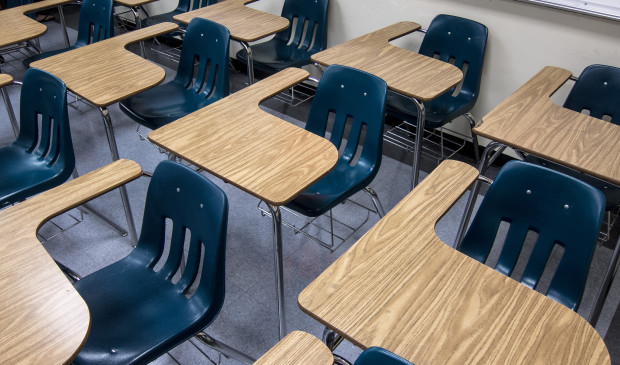AISD hears final budget draft
Monday, August 24, 2015 by
Courtney Griffin On Monday, the Austin Independent School District’s chief financial officer gave trustees the good news first: AISD will have more revenue than it expected to have in June’s version of the Fiscal Year 2015-16 budget. But most of it will go to the state.
Presenting AISD’s near-finalized budget to the board, CFO Nicole Conley said that changes in AISD’s revenue stream were the main differences between June’s revised budget and August’s recommended budget. Conley said there was a significant increase in anticipated appraisal values and state funding.
In FY 2015-16, AISD will collect an estimated $915.3 million from area property taxes, reflecting a 12.5 percent increase in overall appraised property values across the area. But because the school district is considered “property rich” under Texas’ school finance system, AISD will deposit an estimated $268 million of local tax revenue in state coffers.
This is about $92 million more than AISD sent last year. The additional contribution, combined with decreases in funding from the Texas Education Agency, means that AISD’s actual revenue stream increased by about $10 million.
Conley said the additional funds are still not enough to prevent AISD from possibly taking $9 million out of its contingency fund, although its FY 2015-16 expenditures are less than the previous year’s expenditures.
“I think this state is reprehensible in not funding its children in the schools the way that it should,” said District 1 Board Member Edmund Gordon, after the budget presentation. “(In) a city like Austin, which values education and is also the most expensive place to live in the state but still pays its teachers lower than any other urban district in the state and lower than any other surrounding school districts, that’s a ridiculous situation. It’s damaging to the school district.”
Already involved in the less-than-settled lawsuit challenging the constitutionality of Texas’s school finance system, AISD board members are well aware of the damage that lean years are doing to its district.
In past meetings, board members have expressed concerns about the district’s ability to attract and retain quality teachers given its comparatively low salaries. AISD teachers and staff are the state’s lowest-paid urban school district employees, and AISD ranks among the lowest-paying public school districts in the area. This is largely due to the state’s recapture system, to which AISD is the largest contributor.
To help offset low teacher pay, AISD’s recommended budget includes a 3 percent across-the-board salary increase for all full-time and part-time employees. It was a board-recommended solution that took place at a June 23 retreat. The pay increase will cost the district $14.7 million.
The administration is also proposing to lower AISD taxes by 2 cents for this next fiscal year, bringing taxpayers’ bills to $1.202 per $100 of appraised property value.
In addition, the recommended budget proposes $24.1 million in budget decreases compared to last year. Part of the decrease in expenditures stems from $13.8 million in payroll costs associated with AISD’s declining student enrollment.
Conley told board members that although AISD has budgeted to lose about 1,000 students in FY 2015-16, enrollment to date isn’t looking as grim. “Our registration looks a little bit better, but we’ll definitely be checking benchmarks,” she said.
Along with property taxes, AISD’s other main source of revenue is provided by the state. The state gives AISD about $5,140 per student as long as that student attends school on a regular basis.
In accordance to state law, board members must adopt AISD’s budget by Aug. 31, although they will not receive certified appraisal values prior. Conley said the budget might move a little more this year because the Texas Comptroller’s Office has promised the newly implemented residence homestead exemption policy will not affect school districts. But the Comptroller’s Office has yet to detail how, she said.
“It’s kind of like a crapshoot to figure out what’s going on,” District 3 Board Member Ann Teich added at the end of the presentation. “… We are operating in the dark a lot of the time when it comes to property tax appraisals, and that’s one of the reasons the city of Austin has filed suit. I’m hoping they’ll be some progress there.”
Photo by Robert Couse-Baker made available through a Creative Commons 2.0 license.
You're a community leader
And we’re honored you look to us for serious, in-depth news. You know a strong community needs local and dedicated watchdog reporting. We’re here for you and that won’t change. Now will you take the powerful next step and support our nonprofit news organization?



